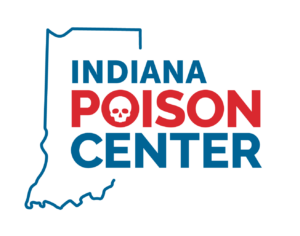Plants, including both house and garden varieties, are among the top ten causes of poisonings in young children under the age of six. In the Midwest, there are dozens of plants that are capable of causing illness or injury.
The potential symptoms of toxicity depend on the specific plant involved. Most exposures occur during spring and summer months and make up nearly ten percent of all the poison exposures in young children reported by poison centers each year. Likewise, the Indiana Poison Center (IPC) receives many calls regarding pet ingestions of yard and garden products that may have harmful chemicals or ingredients.
Tips to Keep Your Family Safe from Plant Poisons
- Keep indoor plants out of the reach of children and pets and pick up any plant parts that fall to the floor.
- Identify all plants in your home and yard. If you’re not sure what a certain plant is, take a sample to a nursery or greenhouse, as it’s nearly impossible to identify a plant from a description over the phone. An adequate sample for identification includes not just a leaf, berry or flower, but a substantial piece of the plant, showing the leaves, branches, bark, flowers, fruit, and any other part of the plant that could help with identification.
- Consider using fake instead of real flowers if young children and/or pets live in or visit your home.
- Store bulbs and seeds locked away, out of reach of children and pets.
- Label all plants with their proper name (preferably the common name and the botanical name). Write it on tape and use permanent ink. Make a sketch of your yard and garden, showing location and name of trees, bushes and plants. Post this map in a convenient place in your home, so you can use it to identify plants, if necessary.
- Keep in mind that planting time can also be a hazard for children, including the seeds which may be mistaken for candy - many are coated with fungicides or insecticides. As you add new plants and flowers to your yard, remember to label each one clearly with the plant name and add it to your plant map.
- Remove all mushrooms in the yard, especially after rainy spells in spring and fall. Most reported deaths from plants result from eating wild mushrooms. Identification of mushrooms growing outside is very difficult - it is best to assume all varieties are toxic. Call the IPC if any part of a wild mushroom is eaten.
- Don’t trust cooking to get rid of the poison in poisonous plants.
- Contact the IPC even if you just suspect a poisoning. Plant material may be digested slowly and symptoms of poisoning can be delayed. Don’t wait for problems to develop, call the IPC immediately at 1.800.222.1222.
For those who enjoy gardening, keep these tips in mind to help to protect you and your family:
- Wear protective clothing when spraying insecticides and pesticides.
- Do not spray upwind when it is windy.
- Keep children and pets away from sprayed areas until dry or for the time specified on the label.
- Take care not to spray near children’s toys, play gyms, sandboxes, bikes, and pet food dishes.
- Store products in their original containers. You may know that the soda bottle in the garage contains weed-killer, but to your thirsty child on a hot day, it may look like something good to drink. The container label also contains important information on how to use the product correctly and should be followed.
- Most importantly – never leave a sprayer unattended…. not even for a few seconds. Remember, children act fast.
